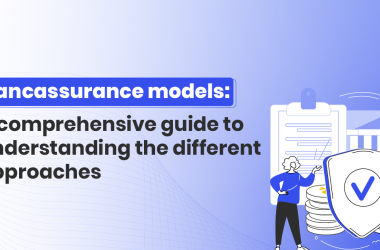How can embedded Insurance help Fintech and Lending Startups in Nigeria drive market penetration? This is a helpful guide based on our understanding of the Nigerian FinTech ecosystem.
In Nigeria, a fintech revolution is reshaping how financial services are provided. Amidst this growth, embedded insurance is emerging as a crucial innovation, offering security and value both to companies and their customers.
The Fintech and Lending Ecosystem in Nigeria Today
Nigeria’s fintech sector has seen explosive growth, with startups addressing diverse needs from micro-lending to personal finance management. These firms are not only filling gaps left by traditional banks but are also revolutionizing access to financial services.
This rapid growth brings an increased need for comprehensive risk management solutions, like embedded insurance, which integrates seamlessly with other financial products.
Common Customer Acquisition Strategies among Fintech and Lending Startups
Effective customer acquisition in Fintech involves leveraging advanced digital marketing techniques, robust technological infrastructures, and integrating value-added services such as insurance.
Many successful startups in Nigerian have utilized:
- Digital Marketing: Targeted ads on social media and search engines tailored to specific demographics.
- Strategic Partnerships: Collaborations with established financial institutions or e-commerce platforms to tap into their customer bases.
- Value-Added Services: Offering embedded insurance enhances customer trust and product value, contributing significantly to user retention and satisfaction.
Role of Embedded Insurance in FinTech and Credit Startups’ Growth
Embedded insurance provides a seamless way to offer protective measures as part of the broader financial service ecosystem.
For Fintechs, this means not only securing your loans or financial products but also enhancing appeal through additional security layers for consumers. Embedded Insurance support Fintech in 2 broad ways:
- Benefits for Consumers: Immediate coverage assurance at the point of transaction enhances trust and reliance on financial products.
- Benefits for Providers: Increases product stickiness and opens new revenue channels while mitigating associated risks.
A Case for Embedded Insurance in FinTech
Fintech companies deal with a myriad of risks ranging from cyber threats to operational disruptions. Recognizing and mitigating these risks through customized insurance solutions not only protects the company but also enhances consumer confidence in digital financial services.
Embedded insurance represents a strategic enhancement in the fintech sector, crucial for startups aiming to scale sustainably in Nigeria’s competitive market. By integrating insurance directly into their service offerings, Fintechs can provide more value, secure customer loyalty, and pave the way for a new era of financial solutions.
Embedded Insurance Products for Fintech and Lending Startups in Nigeria
Credit Default Insurance: When bundled into financial services, Credit Default Insurance safeguards lending startups against losses from borrower defaults.
This has helped many micro-lending companies in Nigeria survive against the rising tide of bad loans due to recent economic instabilities
Fraud Insurance: According to the FITC (a financial research and advocacy organization operated by the Central Bank of Nigeria), Nigerian Fintechs have experienced an uncomfortably high number of cyber frauds which have led to loss of millions of Dollars in the past 3 years.
Since 2020 for instance, Nigerian financial institutions have lost a total of N159 billion ($201.5 million) to fraud incidents. Besides, three Fintech giants have lost over N5 billion ($6 million) in the last one year. Embedded Fraud Insurance offers coverage against such losses from cyber fraud.
Operational Disruption Insurance: Ensures continuity in business operations, covering losses from unexpected disruptions such as system failures or external threats. This contributes to your company’s sustainability if exposed to fire, damage or theft. Operational Disruption Insurance may also cover interruptions to operations resulting from fire damage at suppliers, which result in the company’s operations being affected.
Cyber Liability Insurance: This embedded Insurance product protects Fintech and Credit startups against data breaches and other cyber-related security issues. It may cover recovery costs and associated legal fees depending on the policy terms.
Professional Liability Insurance: Also known as malpractice insurance, this coverage protects a qualified professional against claims alleging negligent acts, errors, or omissions in the performance of providing professional services (defined as those services for which one is certified, licensed, accredited, trained, being trained, or otherwise qualified to provide as specified in a given insurance policy).
Embedded Professional Liability Insurance is essential for Fintech companies in Nigeria offering advisory services, covering claims of negligence or malpractice.
Property Insurance: Protects physical assets like servers and office equipment from damage or theft, which is vital for maintaining operational integrity.
Directors and Officers Insurance: Offers protection to the company’s board and senior management against claims resulting from their decisions and actions taken in their official capacities.
How Nigerian FinTech and Lending Startups Can Increase Market Penetration
- Product Bundling: By bundling insurance products with financial services, fintech companies can provide added value, encouraging uptake among new and existing customers.
- Incentivized Promotions: Offering the first month of insurance for free or at a discounted rate can significantly increase customer interest and adoption.
- Educational Campaigns: Conducting webinars and creating informational content that explains the benefits and need for insurance can demystify insurance products and drive engagement.
Utilizing Data from Embedded Insurance for Tailored Offerings
- Data-Driven Customization: Leveraging data analytics to understand customer behavior and preferences can help Fintech companies offer highly customized insurance products that meet specific needs.
- Feedback Loops: Regularly gathering customer feedback on insurance offerings can provide insights into product adjustments and new product opportunities.
Embedding tailored insurance solutions in fintech services not only enhances the value proposition of these companies but also strengthens customer trust and market stability.
As the Fintech landscape in Nigeria continues to evolve, those companies that are proactive in adopting integrated insurance solutions are likely to lead the market, offering comprehensive services that cater to the broader financial needs of their customers.
Octamile’s digital insurance management infrastructure empowers insurers in Africa with the technology and data to improve claims processing, customer experience and onboarding, integrated distribution and payments. We support Fintech, Logistics, marketplace, among other non-insurance companies with robust insurance management and claims automation APIs that enable them to deliver customer centric embedded insurance products. Let’s talk now.








